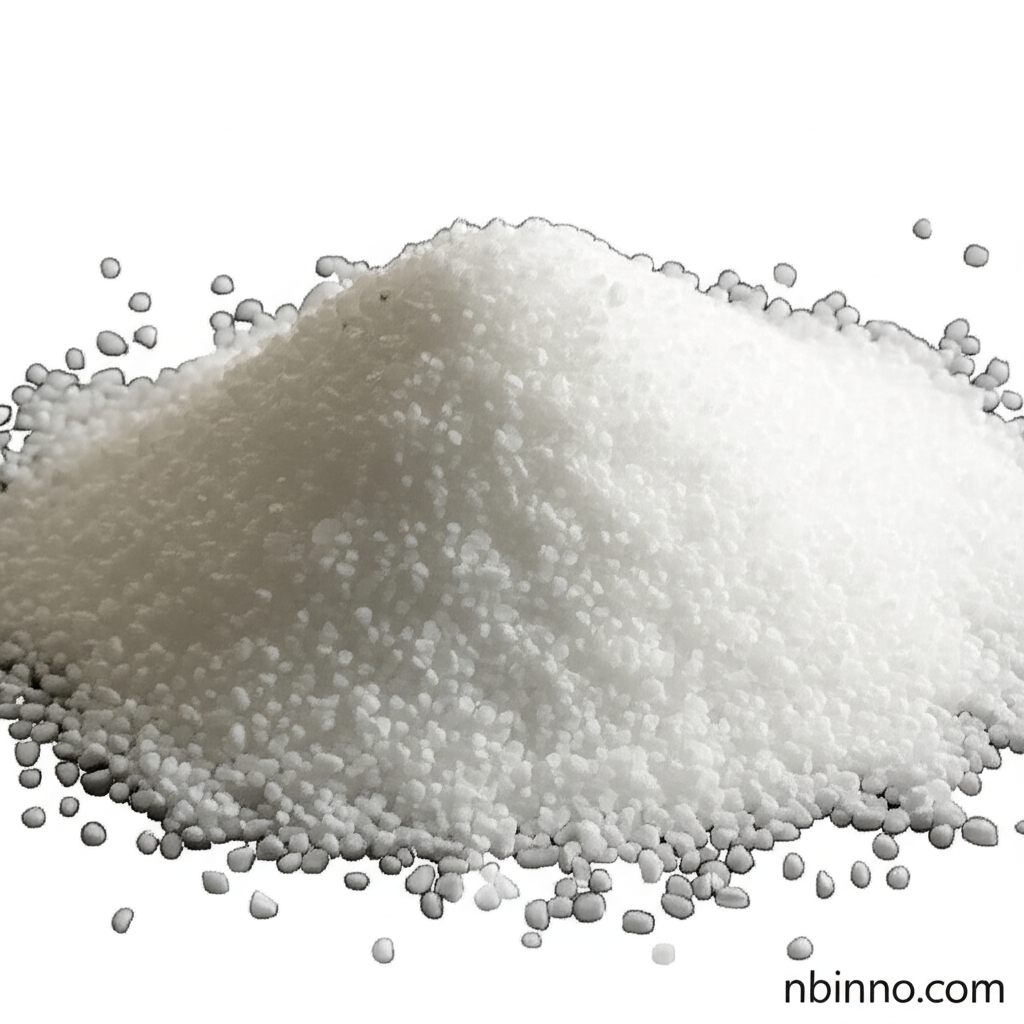Triethylenediamine (TEDA): A Key Catalyst for Polyurethane Foam Production
Discover the critical role of Triethylenediamine (TEDA) as a high-performance catalyst in the polyurethane industry. Learn how this essential chemical drives innovation in flexible and rigid foam applications, offering unparalleled efficiency and quality for manufacturers worldwide.
Get a Quote & SampleUnlock Superior Polyurethane Performance with TEDA

Triethylenediamine (TEDA)
As a leading manufacturer and supplier, we provide high-purity Triethylenediamine (TEDA), a cornerstone catalyst for the polyurethane industry. Our TEDA ensures optimal reaction control, leading to enhanced physical properties and cost-effectiveness in your foam formulations. Trust us as your reliable source for TEDA in China.
- High Catalytic Activity: Accelerate your production cycles with TEDA's potent ability to catalyze both gelling and blowing reactions in polyurethane systems.
- Balanced Reaction Control: Achieve ideal foam structure and mechanical properties by leveraging TEDA's expertise in managing the delicate balance between isocyanate-polyol and water-isocyanate reactions.
- Broad Application Versatility: Our TEDA is your go-to catalyst for a wide array of polyurethane applications, including flexible slabstock, molded foams, rigid insulation, coatings, and elastomers.
- Enhanced Process Efficiency: Benefit from faster production times and potentially lower energy consumption when you buy TEDA from a trusted supplier committed to quality and performance.
Advantages of Using Triethylenediamine (TEDA)
Unmatched Catalytic Efficiency
Triethylenediamine (TEDA) acts as a powerful catalyst, significantly speeding up the urethane formation and gas generation processes crucial for creating polyurethane foams. This high activity means less catalyst is needed, contributing to cost savings for manufacturers.
Versatile Application Range
From soft mattresses to rigid insulation panels, TEDA demonstrates exceptional versatility. It is a preferred choice for formulators seeking a reliable catalyst across various polyurethane systems, ensuring consistent results regardless of the specific application.
Balanced Gel and Blow Reactions
TEDA excels at simultaneously promoting the gelling (polymerization) and blowing (gas expansion) reactions. This balanced catalysis is essential for producing foams with uniform cell structure, optimal density, and desired physical properties, which is key when you purchase our TEDA.
Key Applications of Triethylenediamine (TEDA)
Flexible Polyurethane Foams
TEDA is indispensable in creating the comfort and support in mattresses, furniture upholstery, and automotive seating. Its controlled catalysis ensures the ideal cell structure for softness and durability in these flexible foam applications.
Rigid Polyurethane Foams
In rigid foam systems, TEDA contributes to excellent thermal insulation properties for applications like refrigerators, building insulation, and pipes. Buying TEDA for these uses guarantees efficient foam formation and structural integrity.
Coatings and Elastomers
Beyond foams, TEDA serves as an effective catalyst in polyurethane coatings and elastomers, enhancing their performance characteristics such as chemical resistance and mechanical strength, making it a valuable purchase for diverse chemical formulators.
Automotive Interiors
The automotive industry relies on TEDA for producing comfortable, durable, and lightweight interior components. Its catalytic action ensures consistent quality in dashboard padding, armrests, and headrests, supporting efficient manufacturing processes.
